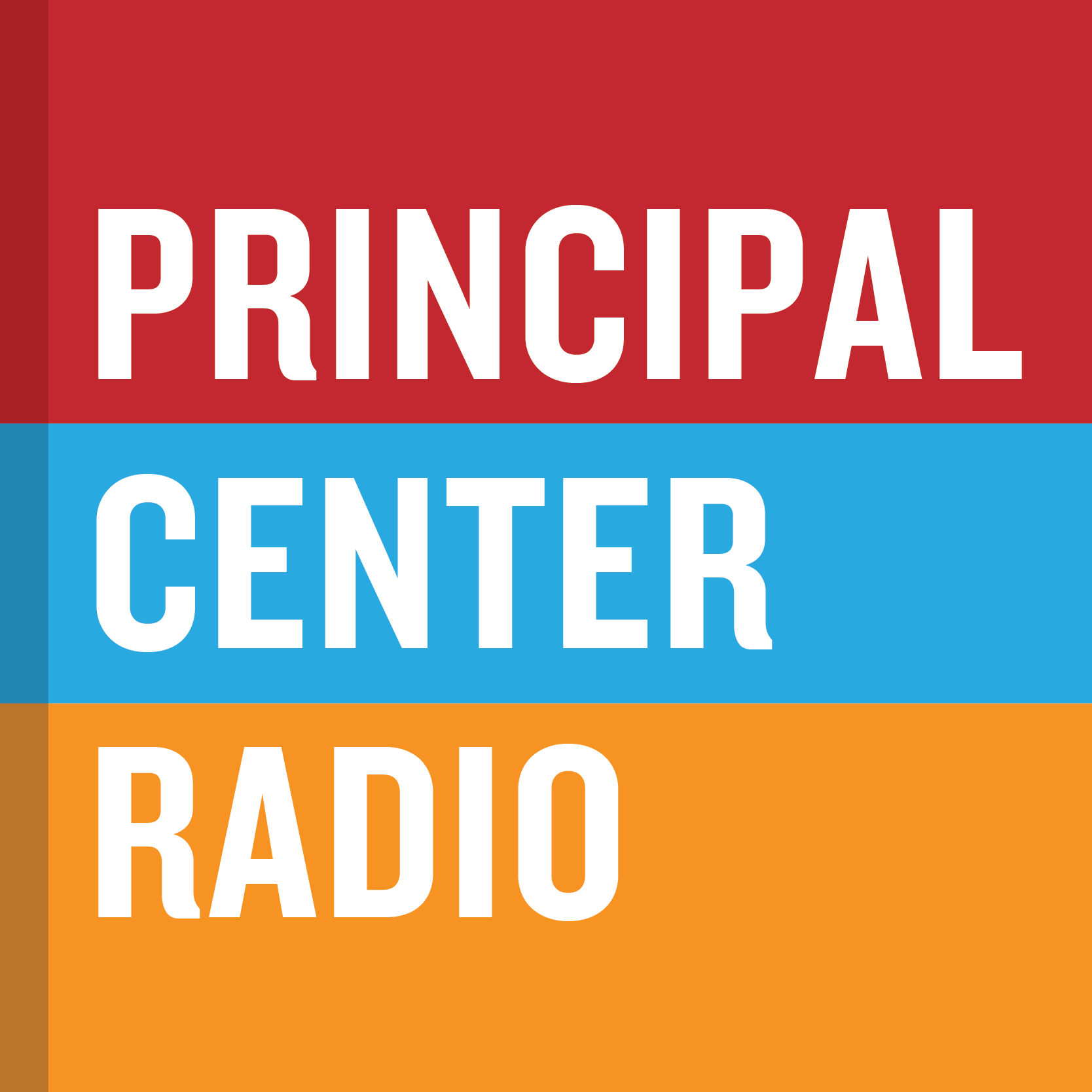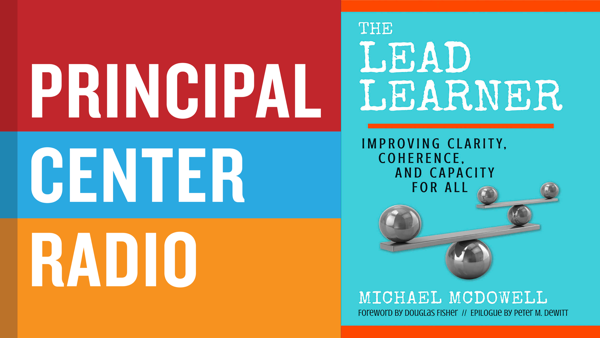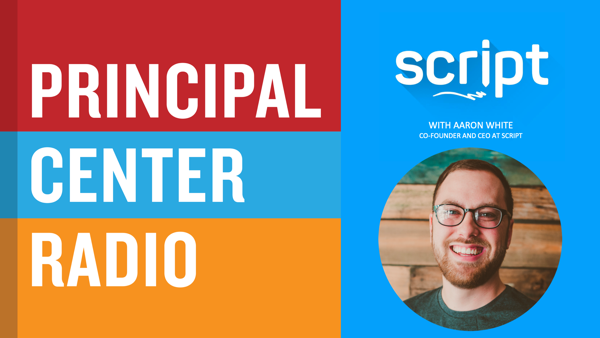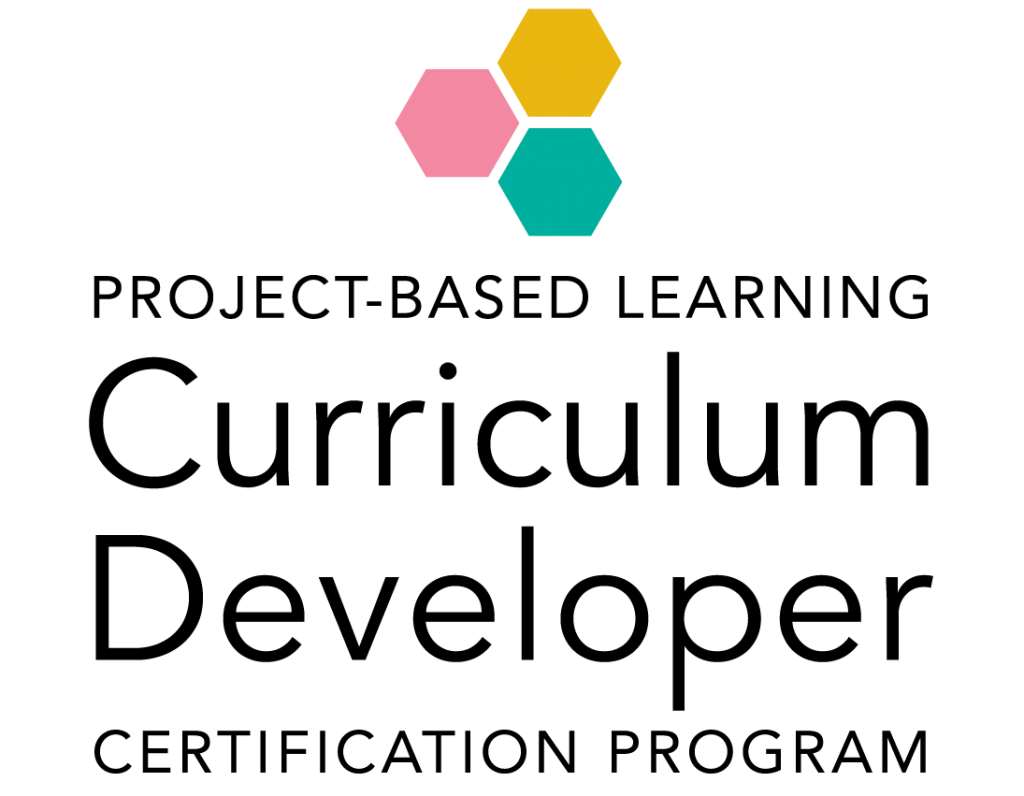Episodes
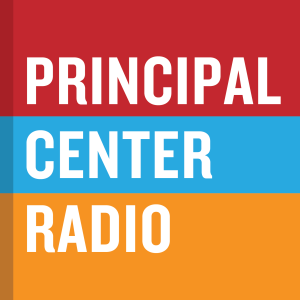
Monday Apr 29, 2019
Baruti Kafele—Is My School a Better School Because I Lead It?
Monday Apr 29, 2019
Monday Apr 29, 2019
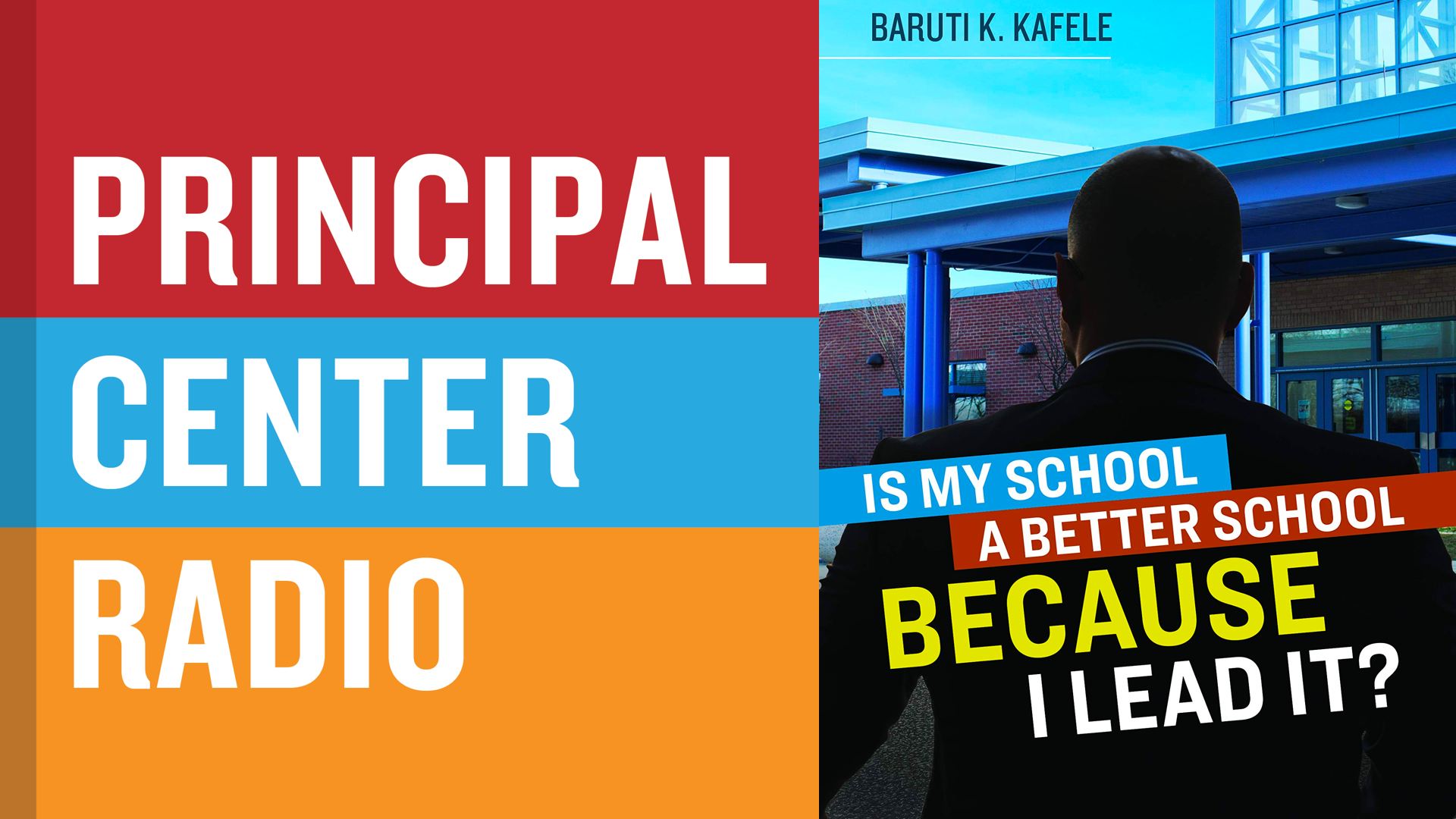
Interview Notes, Resources, & Links
About Baruti Kafele
Baruti Kafele, better known as Principal Kafele, is a sought-after speaker, as well as an award-winning teacher and principal. He's the author of numerous books, including Closing the Attitude Gap, Motivating Black Males to Achieve in School and in Life and The Principal 50: Critical Questions for Inspiring Classroom Excellence

Monday Apr 22, 2019
Monday Apr 22, 2019

Interview Notes, Resources, & Links
About Rebecca Stobaugh
Dr. Rebecca Stobaugh is an associate professor at Western Kentucky University. A former middle school principal and teacher, she's the author of six books on critical thinking, including Fifty Strategies to Boost Cognitive Engagement: Creating a Thinking Culture in the Classroom.

Monday Apr 15, 2019
Monday Apr 15, 2019

Interview Notes, Resources, & Links
About Jared Horvath
Jared Horvath is a cognitive neuroscientist based out of the University of Melbourne specializing in human thought, learning and brain stimulation. His work has been featured in the New Yorker, the Economist, the Atlantic, the New York Times, Scientific American and other notable outlets, and he's the author of Stop Talking, Start Influencing: 12 Insights From Brain Science to Make Your Message Stick.

Monday Apr 08, 2019
Monday Apr 08, 2019

Interview Notes, Resources, & Links
About Sophie Riegel
Sophie Riegel is currently a high school senior and a mental health advocate working to reduce the stigma around mental health issues. She's headed to Duke University next, and she's the author of Don't Tell Me to Relax!: One Teen's Journey to Survive Anxiety and How You Can Too.

Tuesday Apr 02, 2019
Alex Kajitani—Owning It: Proven Strategies to Ace and Embrace Teaching
Tuesday Apr 02, 2019
Tuesday Apr 02, 2019

Interview Notes, Resources, & Links
About Alex Kajitani
Alex Kajitani is a California Teacher of the Year, and the author of three books. A sought-after speaker, he is the founder of Multiplication Nation, an online program to help students master their times tables and have fun doing it.

Tuesday Mar 26, 2019
Tuesday Mar 26, 2019

Interview Notes, Resources, & Links
About Jennifer Abrams
Jennifer Abrams is an international educational and communications consultant for public and independent schools, hospitals, universities and non-profits. Jennifer trains and coaches teachers, administrators, and others on new employee support, supervision, being generationally savvy, having hard conversations and collaboration skills.

Monday Mar 18, 2019
Brad and Tonya Balch—Building Great School Counselor–Administrator Teams
Monday Mar 18, 2019
Monday Mar 18, 2019

Interview Notes, Resources, & Links
About The Authors
Tonya C. Balch, PhD, is a professor in counseling and a faculty member in the Department of Communication Disorders and Counseling, School, and Educational Psychology at Indiana State University. Tonya is a former school counselor who worked with students in grades 7-12 in West Central Indiana.
Bradley V. Balch, PhD, is a professor and dean emeritus at Indiana State University. A former superintendent, principal, assistant principal, teacher, and school board member, as well as a board member of higher education governance bodies including the American Association of Colleges for Teacher Education, he's the author of several books.

Tuesday Mar 12, 2019
Ellen Feig Gray—Hacking School Culture: Designing Compassionate Classrooms
Tuesday Mar 12, 2019
Tuesday Mar 12, 2019

Interview Notes, Resources, & Links
About Ellen Feig Gray
Ellen Feig Gray is the founder of Parent with Perspective. A developmental psychology researcher and positive psychology practitioner, she's the author, with Angela Stockman, of Hacking School Culture: Designing Compassionate Classrooms.

Monday Mar 04, 2019
Monday Mar 04, 2019

Interview Notes, Resources, & Links
About Mike Fisher
Mike Fisher is a writer, curriculum designer, and instructional coach who helps schools revitalize and modernize their curriculum.

Monday Feb 25, 2019
Monday Feb 25, 2019
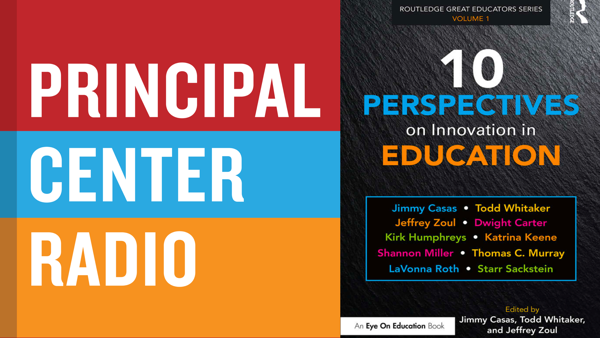
Interview Notes, Resources, & Links
About The Authors
Jimmy Casas is an educator, bestselling author, and speaker with 22 years of school leadership experience.
Jeff Zoul is a lifelong teacher, leader, and learner. After many years of public school service, Jeff now focuses on writing, speaking, consulting, and organizing What Great Educators Do Differently events.
Todd Whitaker is a professor of educational leadership at the University of Missouri. He is a leading presenter in the field of education and is the bestselling author of more than 50 books.

Wednesday Feb 20, 2019
Shawn Rubin & Cathy Sanford—Pathways to Personalization: A Framework for School Change
Wednesday Feb 20, 2019
Wednesday Feb 20, 2019
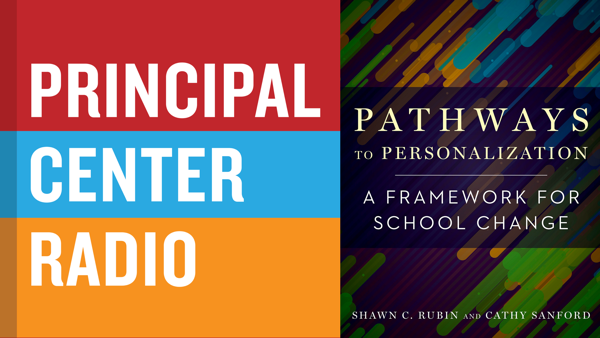
Interview Notes, Resources, & Links
About The Authors
Cathy Sanford leads research and development efforts at Highlander Institute, and Shawn Rubin is the chief education officer at Highlander Institute, and he's the author, with Cathy Sanford, of Pathways to Personalization: A Framework for School Change

Monday Feb 11, 2019
Monday Feb 11, 2019
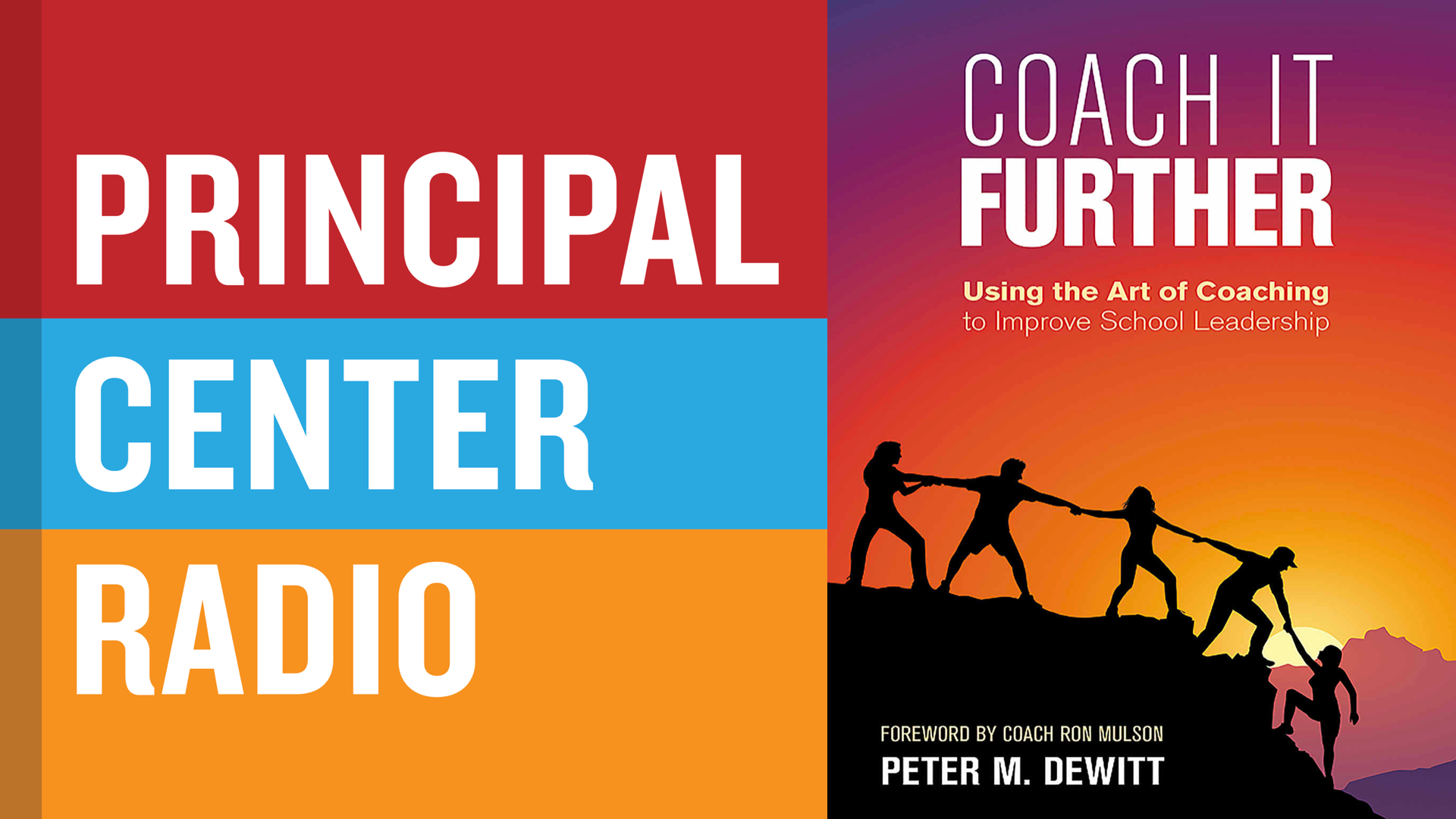
Interview Notes, Resources, & Links
About Dr. Peter Dewitt
Dr. Peter DeWitt is an education consultant focusing on collaborative leadership and fostering inclusive school climates. Within North America, his work has been adopted at the university and state level, and he works with numerous districts, school boards, regional and state organizations where he trains leadership teams and coaches building leaders. He's the author of five books, including his new book Coach It Further.

Monday Feb 04, 2019
Monday Feb 04, 2019
Interview Notes, Resources, & Links
About Michael McDowell, PhD
Dr. Michael McDowell is Superintendent of the Ross School District outside of San Francisco, and an expert in project-based learning and professional development. He's the author of three books, including The Lead Learner: Improving Clarity, Coherence, and Capacity for All.

Monday Jan 21, 2019
Aaron White—Script
Monday Jan 21, 2019
Monday Jan 21, 2019
Interview Notes, Resources, & Links
About Aaron White
Aaron White is CEO & Co-founder of Script. He has previously served as IT director of a charter network, and his current focus is helping schools go paperless and cashless with Script.

Monday Jan 14, 2019
Monday Jan 14, 2019
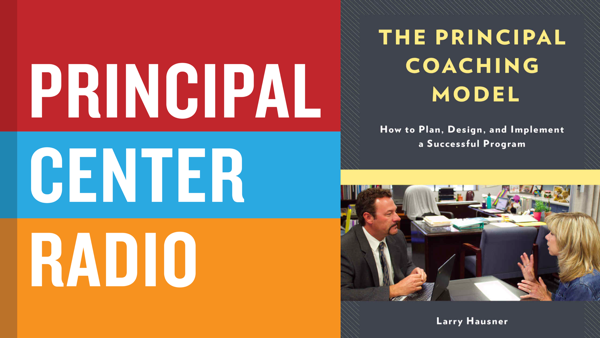
Interview Notes, Resources, & Links
About Dr. Larry Hausner
Dr. Larry Hausner is an experienced principal with more than 14 years in the position. He is a professor at USC and the founder of Coaching School Leadership, a firm dedicated to providing coaching services to principals nationwide.

Monday Jan 07, 2019
Barbara Blackburn & Bradley Witzel—Rigor in the RTI & MTSS Classroom
Monday Jan 07, 2019
Monday Jan 07, 2019
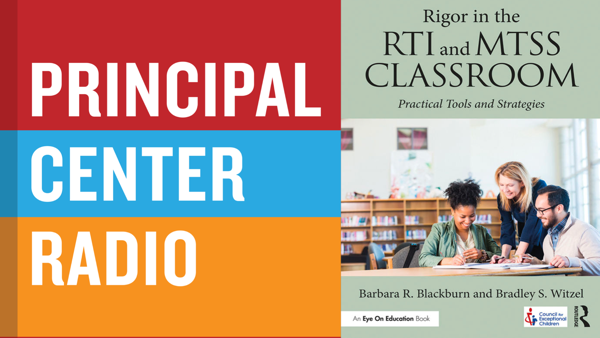
Interview Notes, Resources, & Links
About Barbara Blackburn, PhD
Barbara Blackburn, PhD is the author of 22 books and a full-time consultant who works with schools around the world to help raise the level of rigor and motivation for professional educators and students alike.
About Dr. Bradley Witzel
Dr. Bradley Witzel is professor and Special Education Program Coordinator in the College of Education at Winthrop University.

Monday Dec 17, 2018
Monday Dec 17, 2018
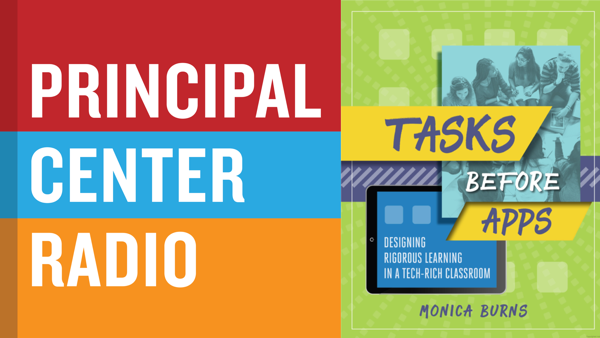
Interview Notes, Resources, & Links
About Monica Burns PhD.
Dr. Monica Burns is a Curriculum and EdTech Consultant, Apple Distinguished Educator and Founder of ClassTechTips.com. She's a featured speaker at the upcoming FETC, the Future of Education Technology Conference, and she's the author of Tasks Before Apps: Designing Rigorous Learning in a Tech-Rich Classroom.

Monday Dec 10, 2018
Luthern Williams—New Roads School
Monday Dec 10, 2018
Monday Dec 10, 2018
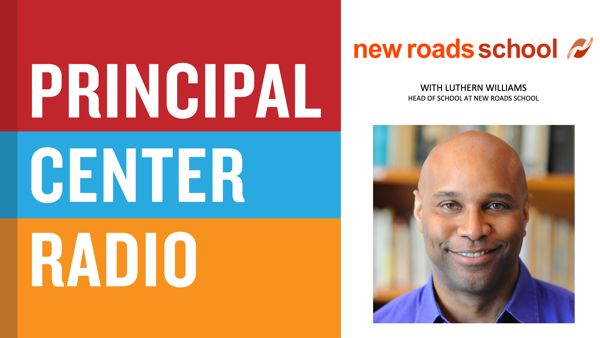
Interview Notes, Resources, & Links
About Luthern Williams
Luthern Williams is Head of School at New Roads School in Santa Monica, California. A graduate of the University of Pennsylvania and Harvard University, his career in educational leadership spans more than 20 years.

Monday Dec 03, 2018
Monday Dec 03, 2018
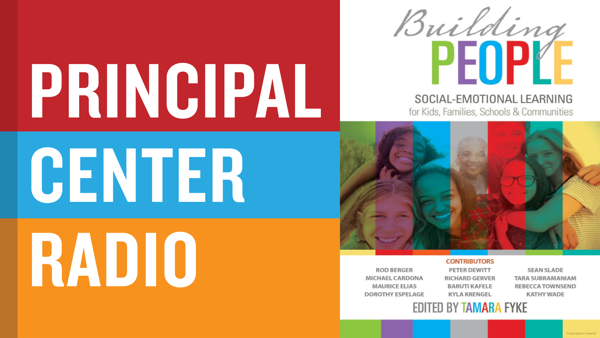
Interview Notes, Resources, & Links
About Tamara Fyke
Tamara Fyke is an author, speaker, and expert on social and emotional learning, and she's the creator of the Love In A Big World curriculum, and the editor and Building People: Social-Emotional Learning for Kids, Families, Schools, and Communities, which we're here to talk about today.

Monday Nov 19, 2018
Monday Nov 19, 2018
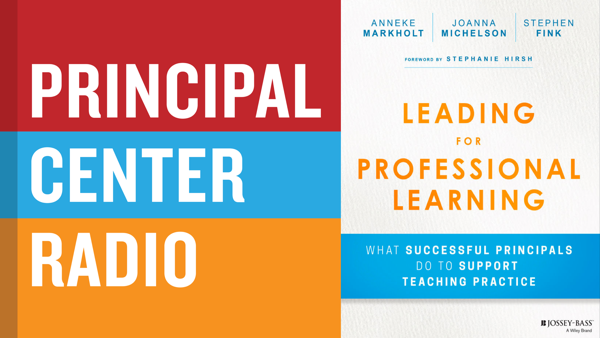
Interview Notes, Resources, & Links
About Dr. Anneke Markholt
Dr. Anneke Markholt is an associate director with the University of Washington Center for Educational Leadership (CEL), and affiliate faculty of educational leadership and policy studies in the University of Washington College of Education. Dr. Markholt is the co-author of Leading for Professional Learning: What Successful Principals Do To Support Teaching Practice with Stephen Fink and Joanna Michelson.
About Dr. Joanna Michelson
Dr. Joanna Michelson is the director of teacher leadership and learning at the Center for Educational Leadership. She leads CEL's teacher professional learning line of services. Dr. Michelson is the co-author of Leading for Professional Learning: What Successful Principals Do To Support Teaching Practice with Stephen Fink and Anneke Markholt.

Monday Nov 12, 2018
Robert Avossa—FETC
Monday Nov 12, 2018
Monday Nov 12, 2018
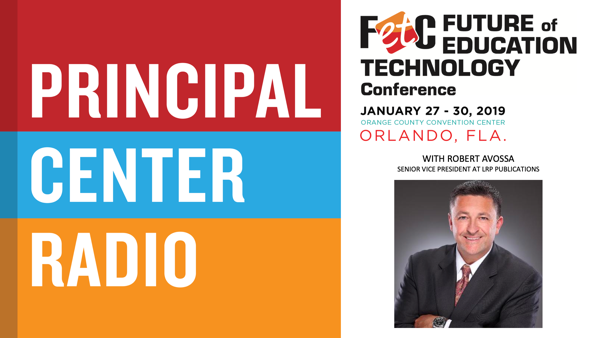
Interview Notes, Resources, & Links
About Dr. Robert Avossa
Dr. Robert Avossa is Senior Vice-President of Education at LRP Media Group, where he oversees the Future of Education Technology Conference, which we're here to talk about today. Dr. Avossa previously served as Superintendent of Palm Beach County and Fulton County Schools in Georgia.

Monday Nov 05, 2018
Cinque Henderson—Sit Down and Shut Up: How Discipline Can Set Students Free
Monday Nov 05, 2018
Monday Nov 05, 2018
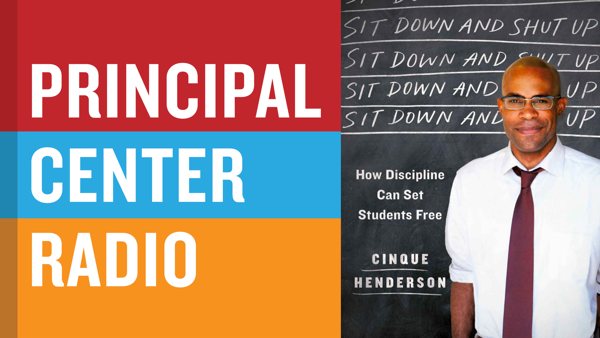
Interview Notes, Resources, & Links
About Cinque Henderson
Cinque Henderson is a writer whose work has appeared in the Washington Post, Newsweek, and on TV networks including HBO and Showtime. A graduate of Harvard University, Cinque spent a year as a substitute teacher in the Los Angeles area, an experience that informed his new book, Sit Down and Shut Up: How Discipline Can Set Students Free.

Monday Oct 29, 2018
Monday Oct 29, 2018
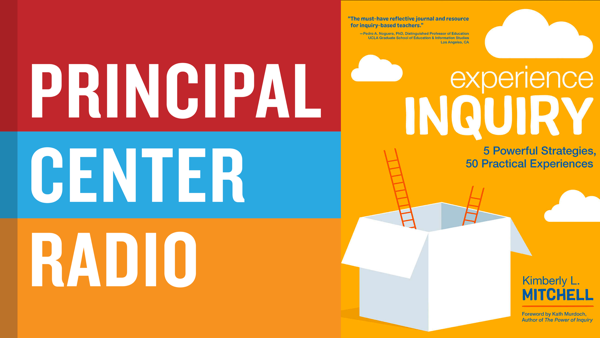
Interview Notes, Resources, & Links
About Kimberly Mitchell
Kimberly Mitchell is a writer, workshop leader and speaker with a focus on deeper learning and inquiry-based teaching practices. Currently teaching at the University of Washington's College of Education, her previous experience includes serving as a principal and teacher in Athens, Seattle, Los Angeles, Ecuador, and elsewhere around the globe, as well as serving as a Senior Program Officer at the Bill & Melinda Gates Foundation.

Monday Oct 22, 2018
Amy Jenkins & Kira Keane—Strategic Communication for Families & Stakeholders
Monday Oct 22, 2018
Monday Oct 22, 2018
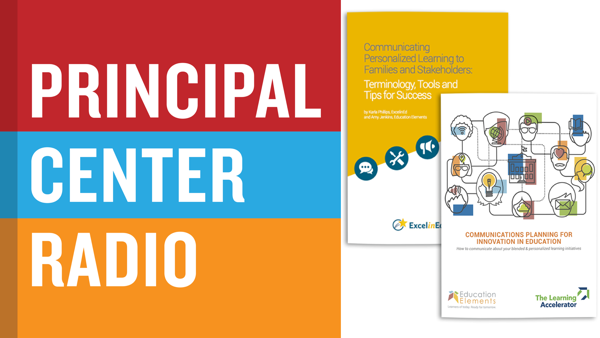
Interview Notes, Resources, & Links
Communicating Personalized Learning to Families and Stakeholders: Terminology, Tools and Tips for Success: A guide to creating informative conversations and preventing miscommunication about personalized learning
Blended & Personalized Learning at Work: A collection of free resources, strategies, and examples of personalized learning in action
Follow The Learning Accelerator on Twitter @LearningAccel
Follow Education Elements on Twitter @edelements
About Kira Keane
Kira Keane is a partner at The Learning Accelerator, where she helps school districts figure out how to integrate technology to personalize learning.
About Amy Jenkins
Amy Jenkins is Chief Operating Officer of Education Elements, where she helps school districts transform learning by moving to more student-centered practices.

Wednesday Oct 17, 2018
Cristal Glangchai—Venture Girls: Raising Girls To Be Tomorrow's Leaders
Wednesday Oct 17, 2018
Wednesday Oct 17, 2018
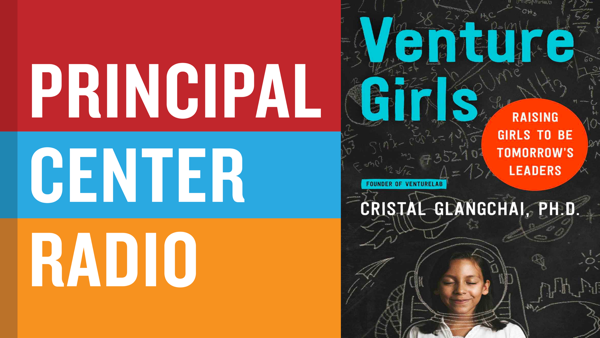
Interview Notes, Resources, & Links
Get the book, VentureGirls: Raising Girls to be Tomorrow's Leaders
Follow Cristal on Twitter @luzcristal23
About Cristal Glangchai
Cristal Glanchai, PhD is a scientist, entrepreneur, and mentor with a passion for teaching and engaging girls in entrepreneurship, science, and technology. She is the founder and CEO of VentureLab, and previously founded a nanotechnology drug delivery company and ran the Idea to Product Program at the University of Texas at Austin.

Tuesday Oct 09, 2018
Tuesday Oct 09, 2018
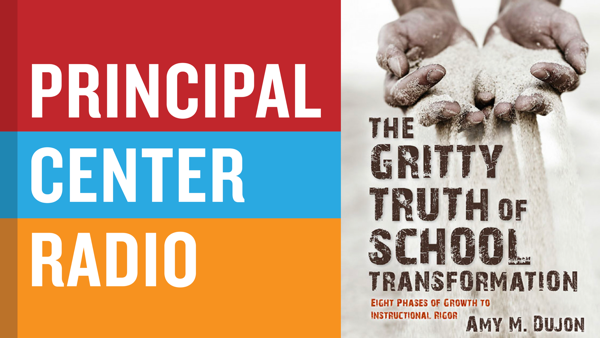
Interview Notes, Resources, & Links
Follow Amy on Twitter @AmyDujon
Visit Amy's Learning Sciences author page
Read Amy's blog post, Lesson Planning: 6 Steps for Aligning Student Tasks With Learning Targets
About Amy M. Dujon
Amy M. Dujon is a practice leader with Learning Sciences International and a former director for leadership development, principal, and teacher. Dujon led one of the first Schools for Rigor in Palm Beach County, Florida, which ignited her passion for student-centered, standards-based instruction. She experienced first-hand the power of a new vision to strengthen core instruction. As a result, she is relentless in her focus to grow professionally and personally, and works with districts and leaders across the country to support their transformation and implementation. Dujon holds an master's of education degree in educational leadership, a bachelor's degree in drama education, and is currently pursuing her doctorate.

Tuesday Oct 02, 2018
Tuesday Oct 02, 2018
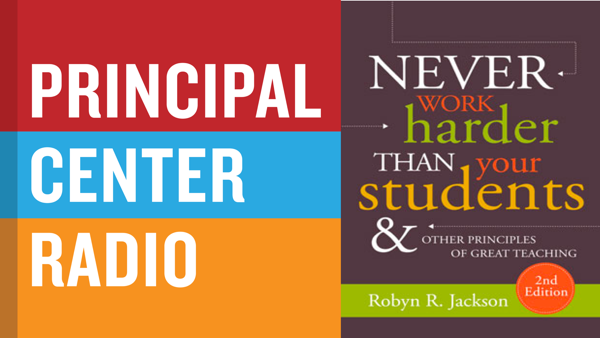
Interview Notes, Resources, & Links
Follow Robyn on Twitter @Robyn_Mindsteps
Listen to the School Leadership Reimagined podcast
About Robyn Jackson PhD
Robyn Jackson, PhD., is the founder of Mindsteps and the host of School Leadership Re-Imagined, the podcast for school administrators, instructional coaches, and teacher leaders. She's the award-winning author of 10 books including the best selling The Instructional Leader’s Guide to Strategic Conversations with Teachers and Never Underestimate Your Teachers, which was chosen as an ASCD Member Book.

Thursday Sep 27, 2018
Thursday Sep 27, 2018
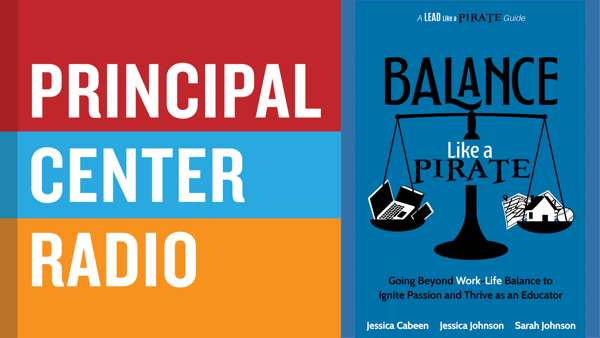
Interview Notes, Resources, & Links
Follow Jessica Cabeen on Twitter @JessicaCabeen
Follow Jessica Johnson on Twitter @PrincipalJ
Follow Sarah Johnson on Twitter @SarahSaJohnson
Follow Balance Like a Pirate on Twitter @BalanceLap and use the hashtag #BalanceLAP
About the Authors
Jessica Cabeen, Jessica Johnson, and Sarah Johnson are three educators who represent a wide range in background and contexts. Their mission in writing this book was to help fellow educators focus intentionally on reclaiming passion, setting priorities, and focusing on purpose to stem burnout in the profession.

Monday Sep 17, 2018
Monday Sep 17, 2018
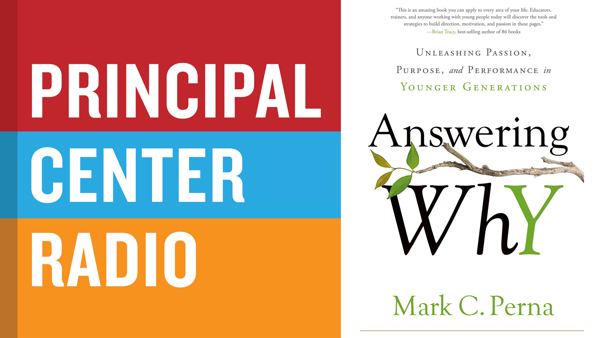
Interview Notes, Resources, & Links
Get the book, Answering Why: Unleashing Passion, Purpose, and Performance in Younger Generations
Follow Mark on Twitter @markperna
About Mark C. Perna
Mark C. Perna is an international expert on Generations Y and Z, and the founder and CEO of TFS, a consulting firm helping educators and employers unleash the tremendous potential of today’s young people, both in the classroom and on the job.

Monday Sep 10, 2018
Monday Sep 10, 2018
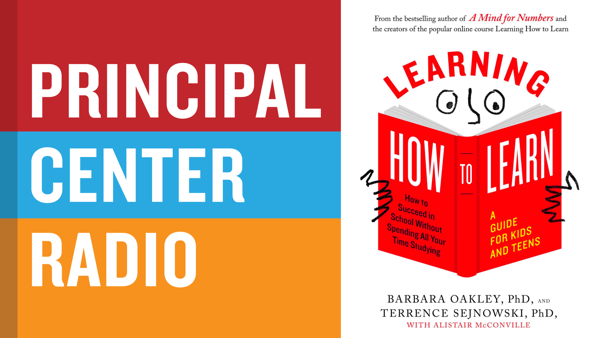
Interview Notes, Resources, & Links
Follow Barbara on Twitter @barbaraoakley
About Barbara Oakley, PhD
Barbara Oakley, PhD is professor of engineering at Oakland University, and the creator of several wildly popular Coursera courses including Mindshift: Break Through Obstacles to Learning and Discover Your Hidden Potential, and Learning How to Learn: Powerful mental tools to help you master tough subjects. She's the author of Learning How to Learn How to Succeed in School Without Spending All Your Time Studying.

Friday Aug 31, 2018
Amy McGrath—ASU Prep Digital
Friday Aug 31, 2018
Friday Aug 31, 2018
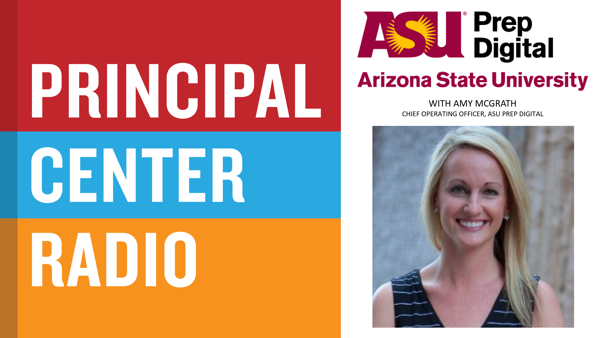
Interview Notes, Resources, & Links
Visit the ASU Prep Digital Website
Follow Amy on Twitter @AmcgrathAmy
About Amy McGrath
Amy is the Chief Operating Officer at ASU Prep Digital as Associate Vice President of Education Outreach at Arizona State University.

Monday Aug 20, 2018
Barbara Blackburn—Rigor & Assessment in the Classroom
Monday Aug 20, 2018
Monday Aug 20, 2018
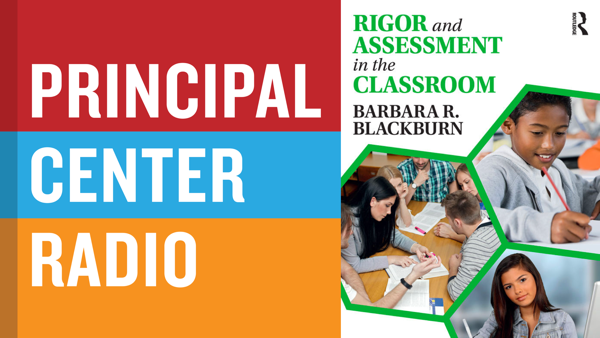
Interview Notes, Resources, & Links
Get the book, Rigor In Your School: A Toolkit for Leaders
Follow Barbara on Twitter @barbblackburn
Free Resources from BarbaraBlackburnOnline
About Barbara Blackburn, PhD
Barbara Blackburn, PhD is the author of 19 books and a full-time consultant who works with schools around the world to help raise the level of rigor and motivation for professional educators and students alike. Dr. Blackburn has been named to the Top 30 Education Gurus by Global Gurus for 3 years running, and she’s the author of Rigor in Your School: A Toolkit for Leaders.

Monday Aug 13, 2018
Jim Henderson—3Q Check-In System
Monday Aug 13, 2018
Monday Aug 13, 2018
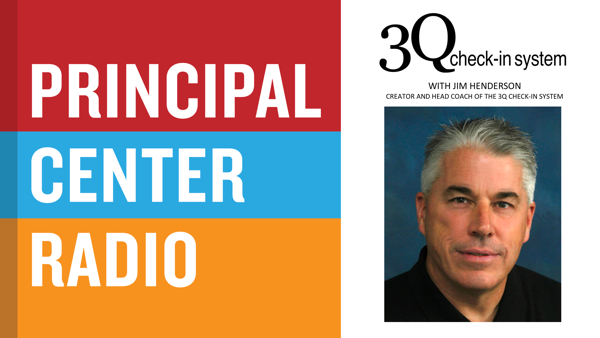
Interview Notes, Resources, & Links
About Jim Henderson
Dr. Jim Henderson is the creator and head coach of the 3Q Check-In System. You may have heard him on This American Life or seen his live stage events with William Paul Young, author of The Shack.

Monday Aug 06, 2018
Guillaume Gendre—School By Design
Monday Aug 06, 2018
Monday Aug 06, 2018
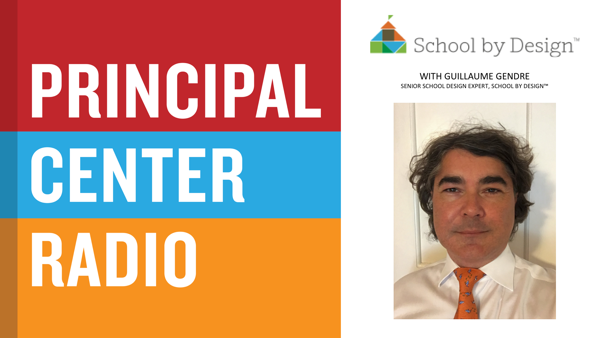
Interview Notes, Resources, & Links
Visit the School By Design website
About Guillaume Gendre
Guillaume Gendre is a senior school design expert for School by Design, where he helps districts design the schools students and teachers need with the resources they have. He has 20 years’ experience in the field of education and has previously been a principal in Washington, DC and Hartford, CT, and an assessment specialist for the Oregon Department of Education.

Monday Jul 16, 2018
Barbara Blackburn—Rigor In Your School: A Toolkit for Leaders
Monday Jul 16, 2018
Monday Jul 16, 2018
Interview Notes, Resources, & Links Get the book, Rigor In Your School: A Toolkit for Leaders Follow Barbara on Twitter @barbblackburn Visit Barbara's website Free Resources from BarbaraBlackburnOnline About Barbara Blackburn, PhD Barbara Blackburn, PhD is the author of 18 books and a full-time consultant who works with schools around the world to help raise the […]
The post Barbara Blackburn—Rigor In Your School: A Toolkit for Leaders appeared first on The Principal Center.

Monday Jul 16, 2018
Monday Jul 16, 2018
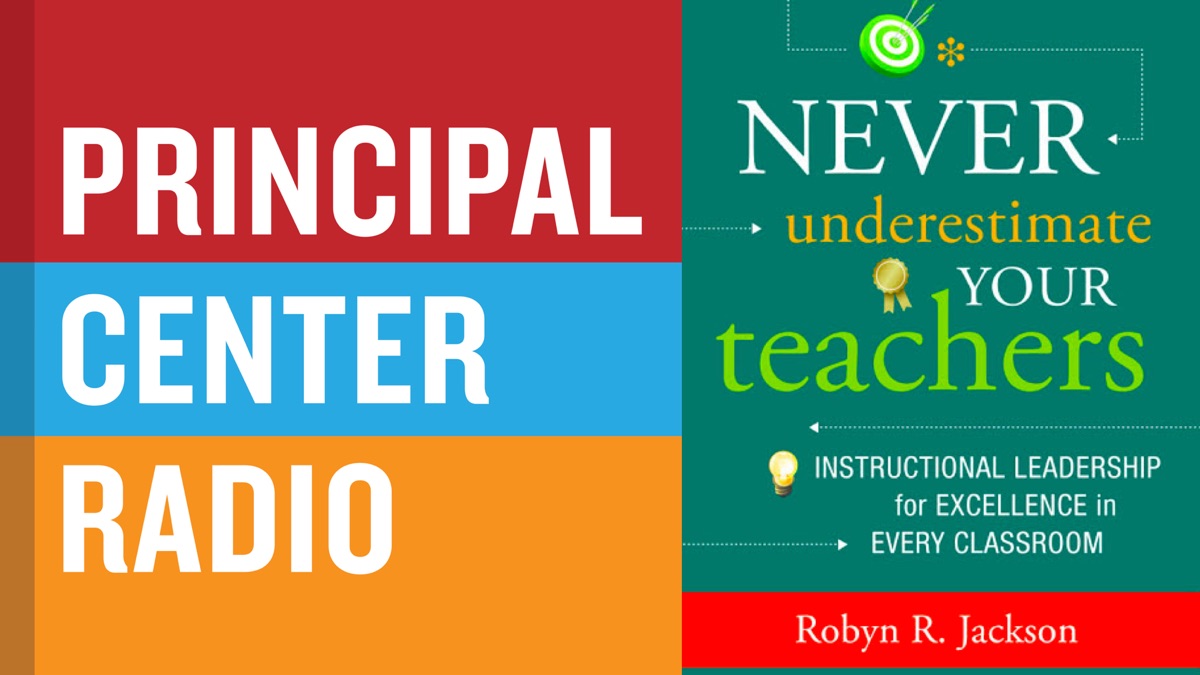
Interview Notes, Resources, & Links
Follow Robyn on Twitter @Robyn_Mindsteps
Listen to the School Leadership Reimagined podcast
About Robyn Jackson, PhD
Robyn Jackson, PhD., is the founder of Mindsteps and the host of School Leadership Re-Imagined, the podcast for school administrators, instructional coaches, and teacher leaders. She's the award-winning author of 10 books including the best selling The Instructional Leader’s Guide to Strategic Conversations with Teachers and Never Underestimate Your Teachers, which was chosen as an ASCD Member Book.

Monday Jul 02, 2018
Monday Jul 02, 2018
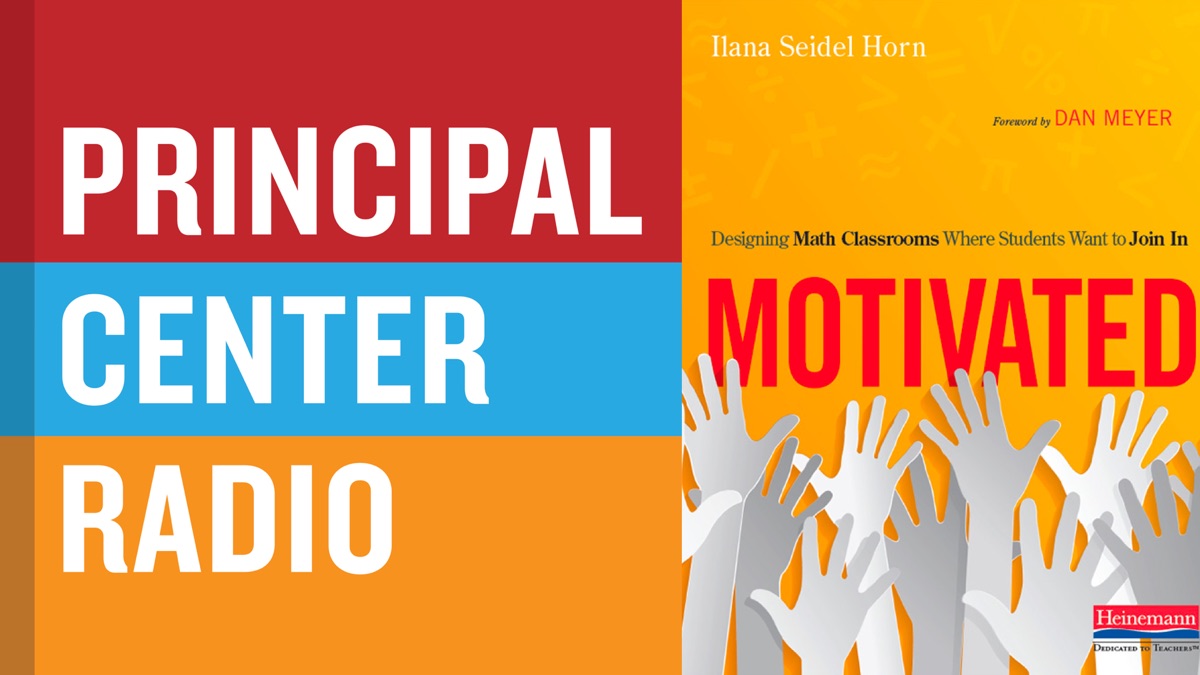
Interview Notes, Resources, & Links
Get the book, Motivated: Designing Math Classrooms Where Students Want to Join In
Follow Ilana on Twitter @ilana_horn
About Ilana Horn
Ilana Seidel Horn, PhD is Professor of Mathematics Education at Vanderbilt University's Peabody College, where her research and teaching center on ways to make authentic mathematics accessible to students, particularly those who have historically been disenfranchised by our educational system. She is the author of numerous scholarly publications and several books, including her new book Motivated: Designing Math Classrooms Where Students Want to Join In

Tuesday Jun 26, 2018
Tuesday Jun 26, 2018
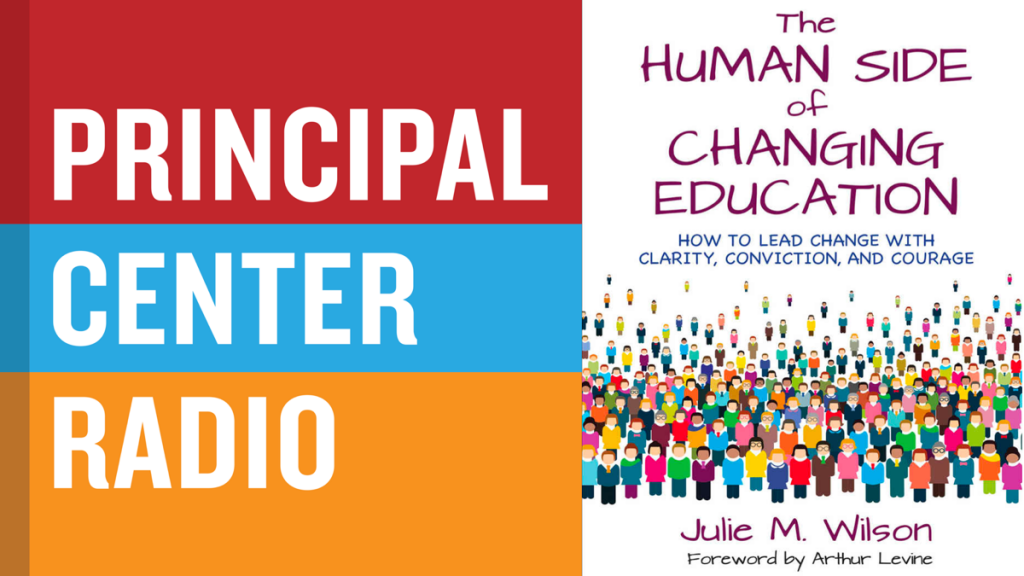
Interview Notes, Resources, & Links
Visit the Institute for the Future of Learning Website
Follow Julie on Twitter @juliemargretta
Bonus Content: Listen to Julie and Justin talk more about organizational change
About Julie M. Wilson
Julie Margretta Wilson is the founder and executive director of the Institute for the Future of Learning. An alumnus of the Harvard Graduate School of Education, she is the author The Human Side of Changing Education: How to Lead Change With Clarity, Conviction, and Courage

Monday Jun 18, 2018
Elena Aguilar—Onward: Cultivating Emotional Resilience in Educators
Monday Jun 18, 2018
Monday Jun 18, 2018
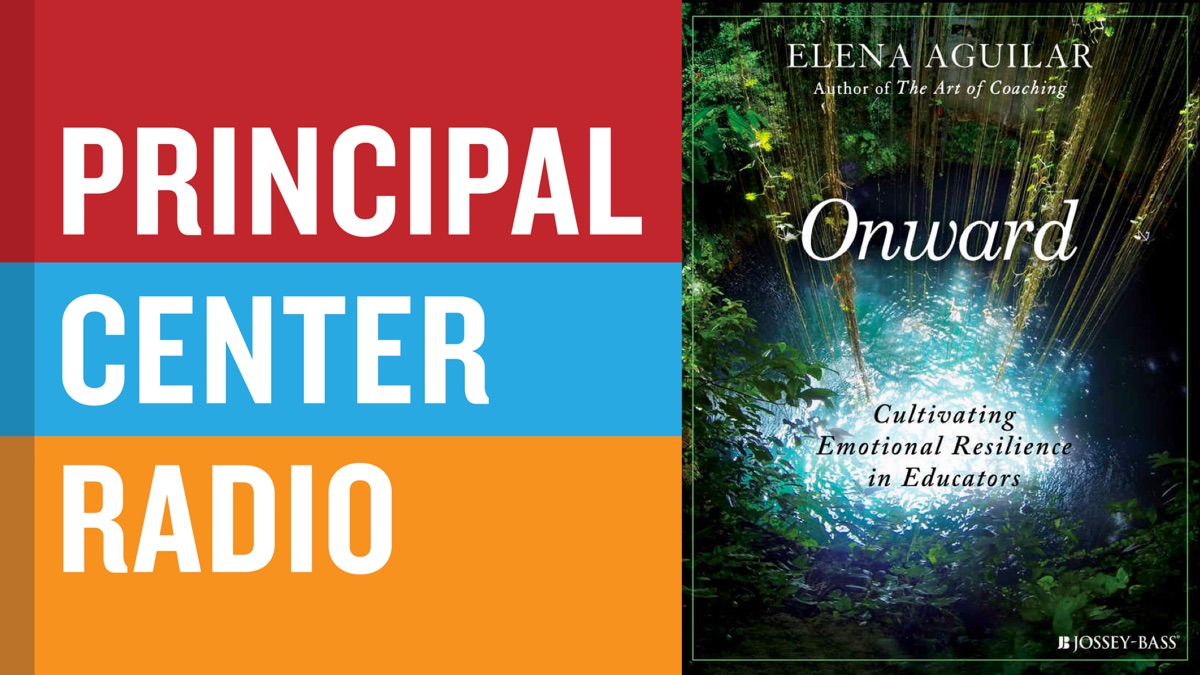
Interview Notes, Resources, & Links
Get the book, Onward: Cultivating Emotional Resilience in Educators
Visit the OnwardTheBook Website
Visit the Bright Morning Consulting Website
Follow Elena on Twitter @artofcoaching1
About Elena Aguilar
Elena Aguilar is the founder and president of Bright Morning Consulting, an educational consulting group that works around the world supporting educators to meet the needs of children. She is the author of The Art of Coaching and The Art of Coaching Teams and a longtime contributor to Edutopia and EdWeek.

Monday Jun 11, 2018
Monday Jun 11, 2018
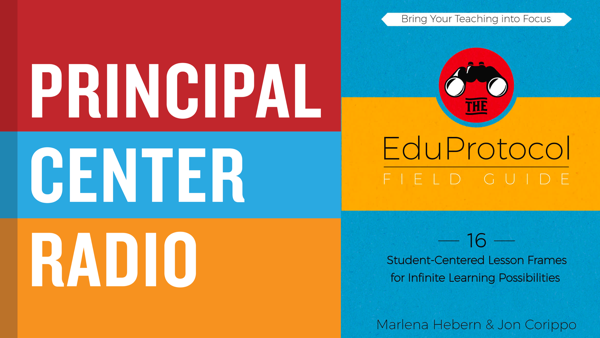
Interview Notes, Resources, & Links
Visit the EduProtocols Website
Follow Marlena on Twitter @mhebern
About Marlena Hebern
Marlena Hebern is a Google Certified Innovator, Google Trainer, and co-founder of EdCamp Yosemite. She is the author, with Jon Corippo, of The EduProtocol Field Guide: 16 Student-Centered Lesson Frames for Infinite Learning Possibilities

Monday Jun 04, 2018
Monday Jun 04, 2018
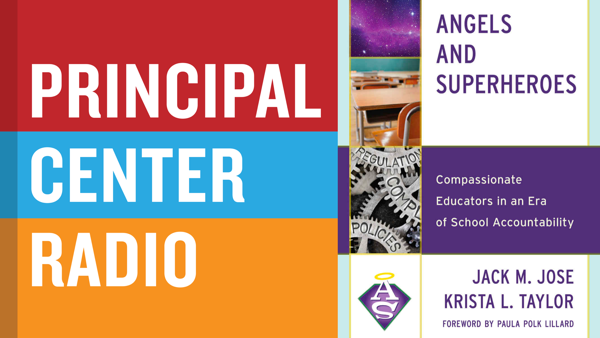
Interview Notes, Resources, & Links
Get the book, Angels and Superheroes Compassionate Educators in an Era of School Accountability
Visit the Angels and Superheroes website
About Jack Jose
Jack Jose is the Principal of Gamble Montessori High School in Cincinnati Public Schools. Before coming to Gamble he was an English teacher and Paideia Program facilitator at Hughes Center, a CPS school, for 13 years. He has presented at conferences for the Ohio Council of the International Reading Association, the Cincinnati Montessori Society, and the Ohio Montessori Alliance.
About Krista Taylor
Krista L. Taylor is an intervention specialist and CPS Lead Teacher with a passion for including students with a wide range of disabilities. In 2015, Krista was named the Western and Southern Lawrence C. Hawkins Educator of the Year in Cincinnati Public Schools.

Friday Jun 01, 2018
Friday Jun 01, 2018
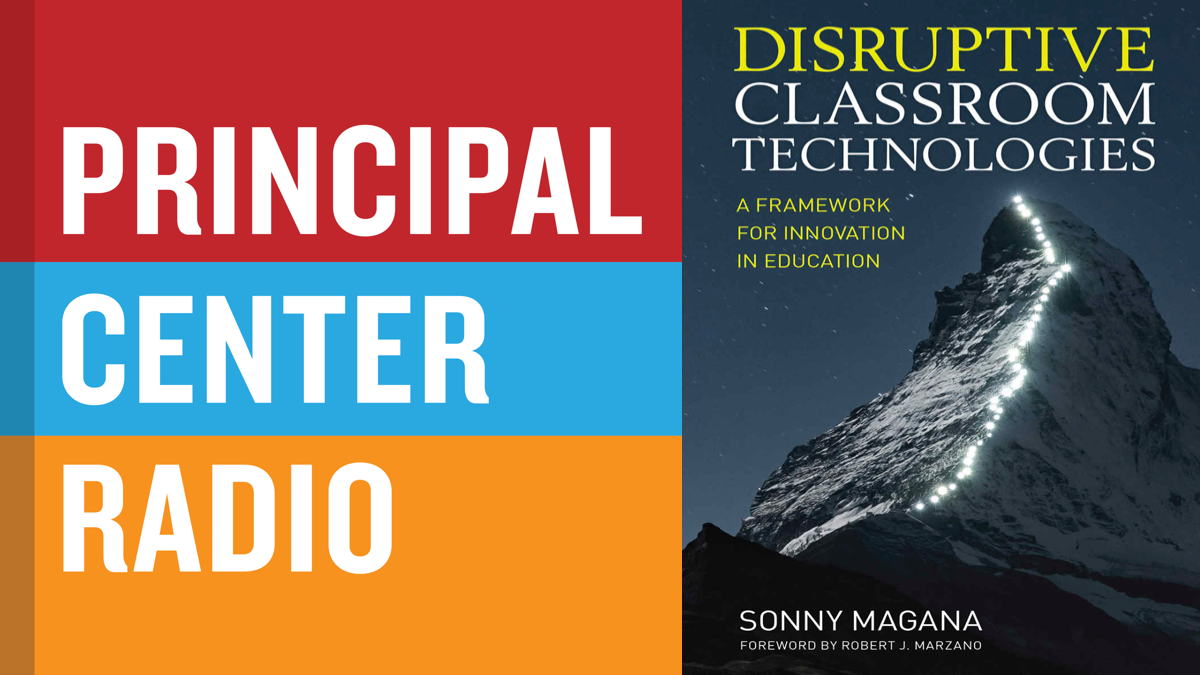
Interview Notes, Resources, & Links
Get the book, Disruptive Classroom Technologies: A Framework for Innovation in Education
Follow Sonny on Twitter @SonnyMagana
Learn more about the Project-Based Learning Network
About Dr. Sonny Magana
Dr. Sonny Magana is Milken Award-winning educator, author, and ed tech researcher. A sought-after speaker and consultant, he's the author, with Robert Marzano, of Enhancing the Art & Science of Teaching with Technology, as well as Disruptive Classroom Technologies: A Framework for Innovation in Education.

Monday May 21, 2018
Monday May 21, 2018
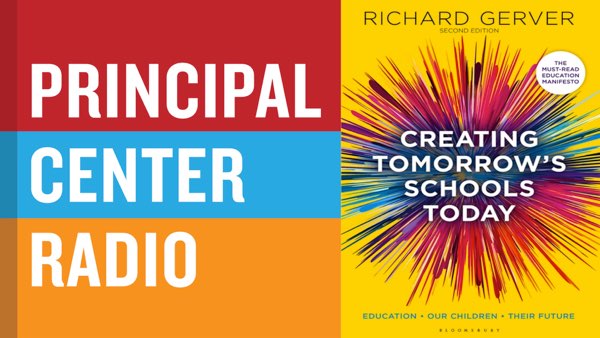
Interview Notes, Resources, & Links
Get the book, Creating Tomorrow's Schools Today: Education. Our Children. Their Future
Follow Richard on Twitter @RichardGerver
About Richard Gerver
Richard Gerver is an internationally renowned educator, public speaker, and change expert. The author of three books, he is a former teacher and principal, and currently advises governments, corporations, and other large organizations on leadership, change, and innovation.

Monday May 14, 2018
Alex Kajitani—Multiplication Nation
Monday May 14, 2018
Monday May 14, 2018
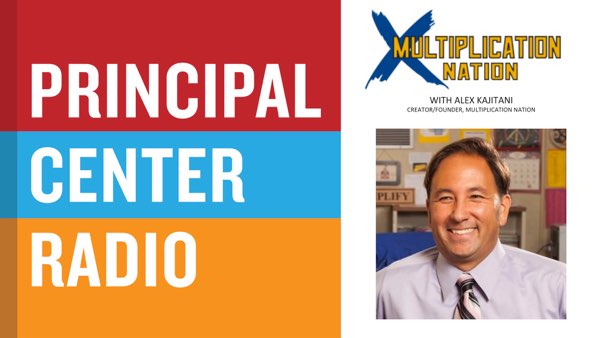
Interview Notes, Resources, & Links
Visit the Multiplication Nation website
About Alex Kajitani
Alex Kajitani is a California Teacher of the Year, and the author of three books. A sought-after speaker, he is the founder of Multiplication Nation, an online program to help students master their times tables and have fun doing it.

Monday May 07, 2018
Monday May 07, 2018
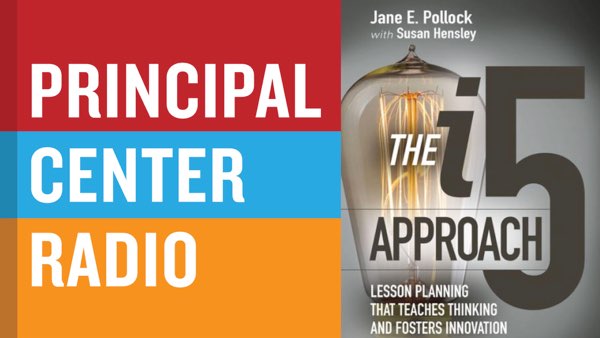
Interview Notes, Resources, & Links
Get the book, The i5 Approach: Lesson Planning That Teaches Thinking And Fosters Innovation
Visit the Learning Horizon website
About Jane E. Pollock, PhD
Jane E Pollock, Ph.D., is president of Learning Horizon. She is the co-author of the ASCD bestseller, Classroom Instruction That Works (2001), works worldwide with teachers, coaches and principals on curriculum, instruction, assessment, and supervision. Her work results in improved student achievement at the classroom and school levels. A former classroom and ESL teacher, Jane worked as a district administrator and Senior Researcher for McREL Research Laboratory.
The Project-Based Learning Curriculum Developer Certification Program
For more information about the upcoming Project-Based Learning Curriculum Developer Certification Program visit amybaeder.com/certification

Tuesday May 01, 2018
Denver Fowler—The 21st Century School Leader: Leading Schools in Today’s World
Tuesday May 01, 2018
Tuesday May 01, 2018
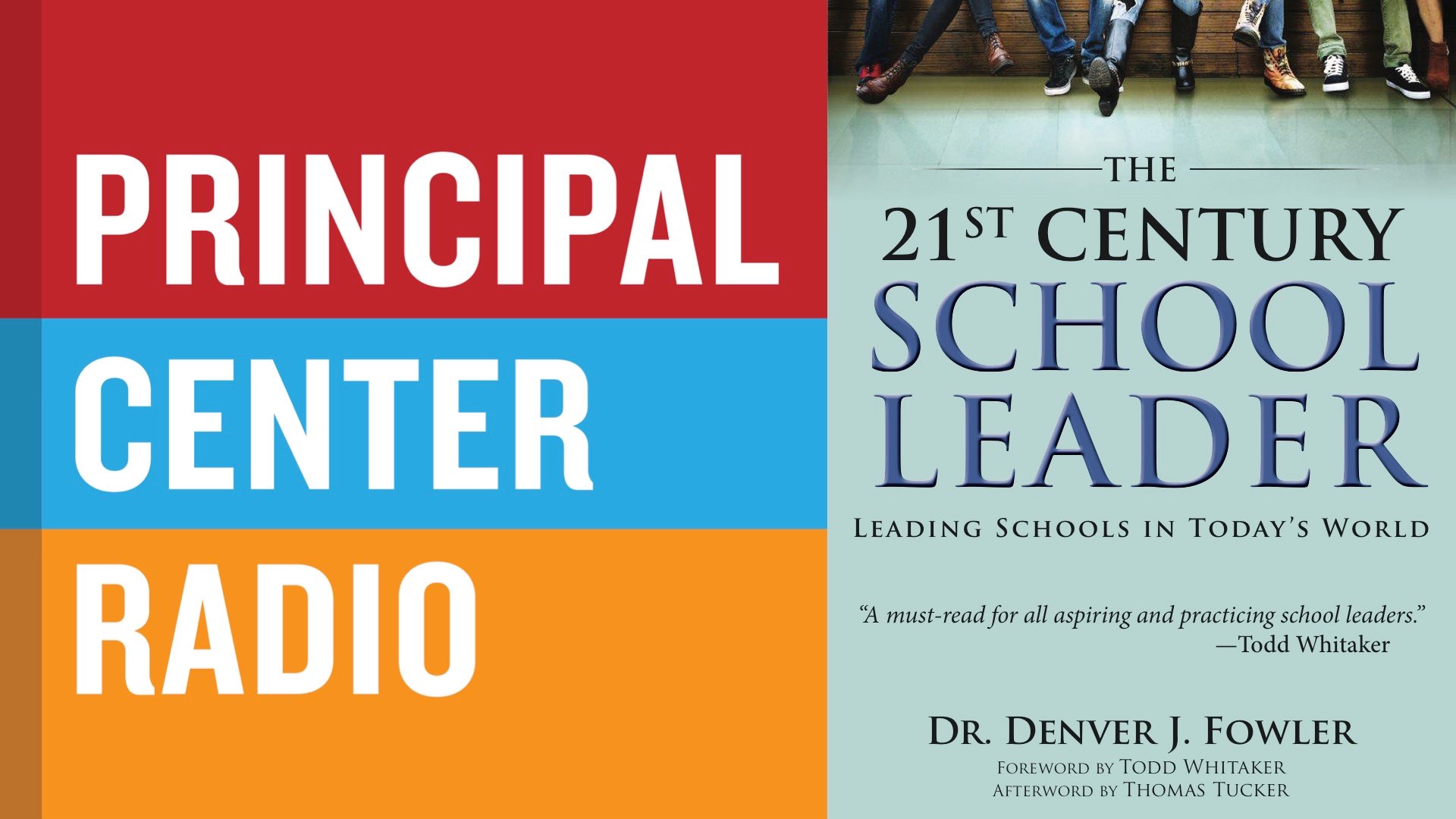
Interview Notes, Resources, & Links
Follow Denver on Twitter @DenverJFowler
To pre-order the book, The 21st Century School Leader: Leading Schools in Today's World email darrin.griffiths@wordanddeedpublishing.com
About Dr. Denver J. Fowler
Dr. Denver J. Fowler is Assistant Professor of Educational Leadership and Policy Studies at California State University, Sacramento. A career educator, he was previously honored as the Ohio nominee for the NASSP National Assistant Principal of the Year Award.

Friday Apr 20, 2018
Barbara Blackburn—The Principalship from A to Z
Friday Apr 20, 2018
Friday Apr 20, 2018
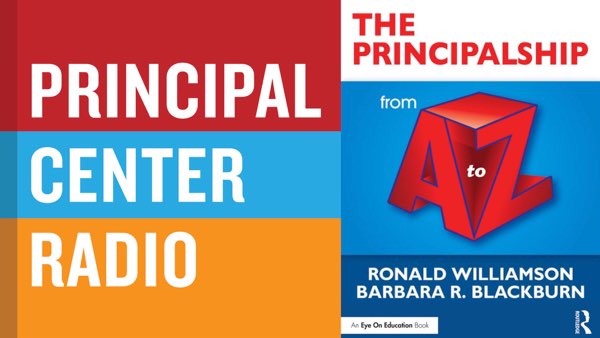
Interview Notes, Resources, & Links
Follow Barbara on Twitter @BarbBlackburn
View a collection of Barbara's publications at Routledge.com
About Barbara Blackburn, PhD
Barbara Blackburn, PhD is the author of 18 books and a full-time consultant who works with schools around the world to help raise the level of rigor and motivation for professional educators and students alike. Dr. Blackburn has been named to the Top 30 Education Gurus by Global Gurus for 3 years running, and she’s co-author of the new book Advocacy A to Z.

Tuesday Apr 17, 2018
Rick Jetter—Let Them Speak: How Student Voice Can Transform Your School
Tuesday Apr 17, 2018
Tuesday Apr 17, 2018
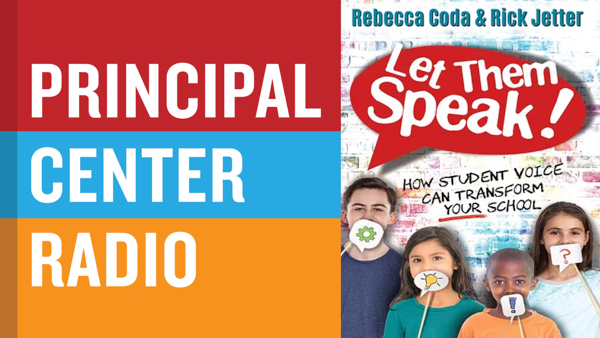
Interview Notes, Resources, & Links
Visit the Let Them Speak! Website
Follow Dr. Jetter on Twitter @RickJetter
Follow Rebecca Coda on Twitter @RebeccaCoda
About Dr. Rick Jetter
Rick Jetter, Ph.D. is Lead Consultant and Partner at Pushing Boundaries Consulting. A former teacher, assistant principal, principal, assistant superintendent, and superintendent, and the author of 6 books.

Monday Apr 09, 2018
Monday Apr 09, 2018
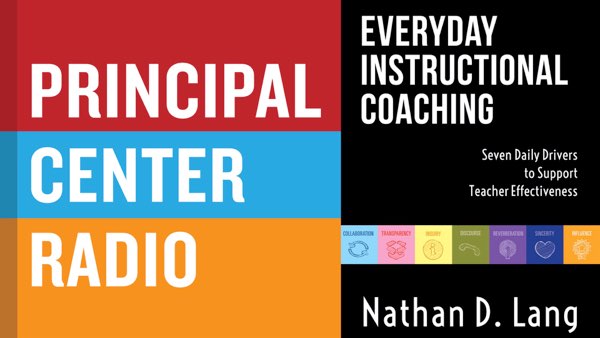
Interview Notes, Resources, & Links
Follow Nathan on Twitter @nalang1
About Nathan D. Lang
Dr. Nathan Lang is former science teacher and NASA educator, administrator, and ultimately director of Curriculum & Instruction for Nashville City Schools. He's currently Chief Education Officer for WeVideo, a platform for student video creation.

Monday Apr 02, 2018
Monday Apr 02, 2018
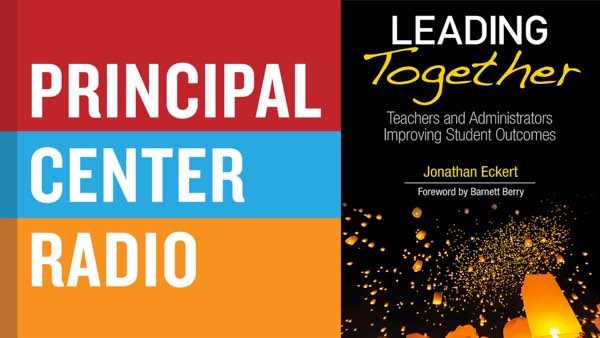
Interview Notes, Resources, & Links
Get the book, Leading Together: Teachers and Administrators Improving Student Outcomes
About Dr. Jonathan Eckert
Dr. Jonathan Eckert is associate professor of education at Wheaton, and previously served as a Teaching Ambassador Fellow at the U.S. Department of Education under the Bush and Obama administrations. He works in teacher education at Wheaton, and with schools across the country to improve policies and teaching practice through the Center for Teaching Quality. He's the author of two books.

